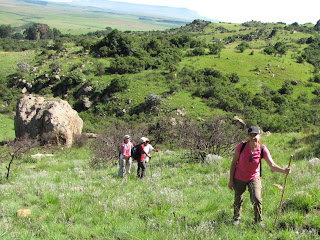In John 21:1-14 Jesus shows up by the
Sea of Galilee where some of his disciples had been fishing all night without a
catch. Interestingly, these guys didn't recognize him. Jesus asked how things were going, gave some
fishing advice, and still…nothing.
Why was it that the disciples didn't recognize Jesus? How is that even
possible? Was it merely because it was out of context
and they weren't expecting him? Was it
because they were too preoccupied with their own activities? Perhaps it was because Jesus veiled his
identity at first in order to build their trust and leave them with another
miracle.
I’m not sure. But I can relate to each of these scenarios.
“The man” told
them to throw the net down on the right and there would be fish. They did, and the catch was miraculous.
That the net didn't break was pretty miraculous as well. It was then that they realized it was Jesus who was with them.
“Jesus said to
them, “Come and have breakfast.” None of the disciples dared ask him, “Who are
you?” They knew it was the Lord.” John 21:12
Imagine having breakfast
on the beach with Jesus Christ!
At first I
thought the whole “not recognizing” thing strange,
inexcusable really given what these guys had all been through
together. But then I paused and realized that I probably do the same thing
every day.
How often do I fail to recognize Christ’s presence because
it seems out of context? Either I’m not expecting it, or I’m expecting it to be my own way.
How often to I
fail to recognize Christ because I’m
preoccupied with myself, my own needs and wants, my own agenda and
activities?
Does my failure
to notice him in the quiet, everyday moments force him to hold out for those less frequent but grander appearances
that will actually get my attention?
Where is it that God
is clearly working, yet I’m overlooking thinking
he’s somewhere else rather than right here with me?
Like with these
disciples, Jesus is right here with
you and with me. He wants to lead us as Lord, rescue us as Savior, and just have breakfast with us as a father or a friend.
Pray for eyes that recognize him – his presence,
his hand, his help.
PS. In this picture, our coaches are having a
great time during our year-end Durban celebration.













